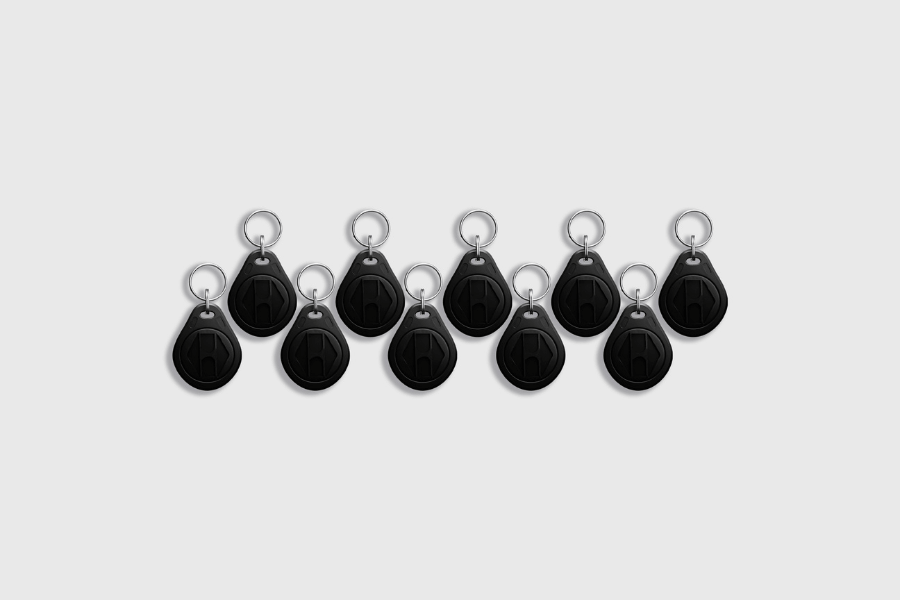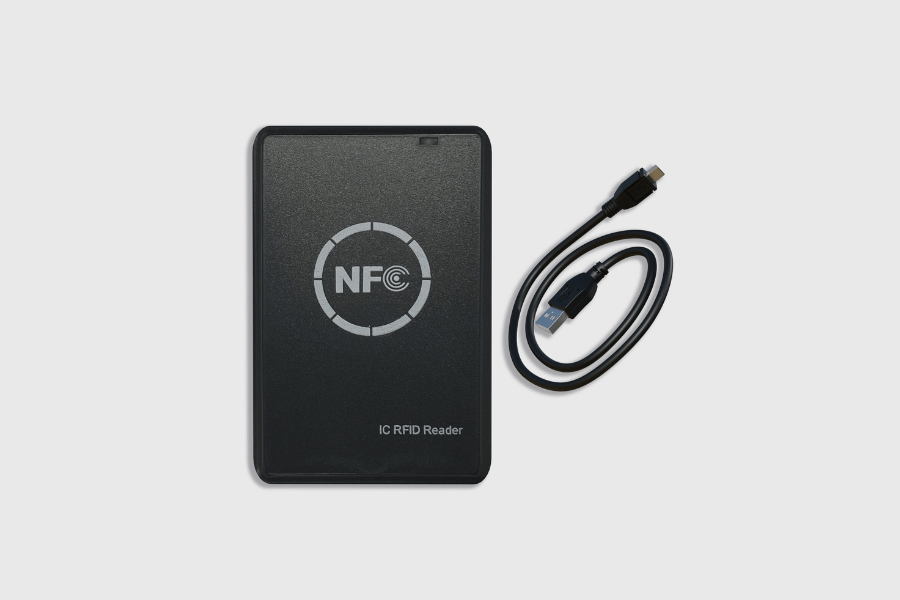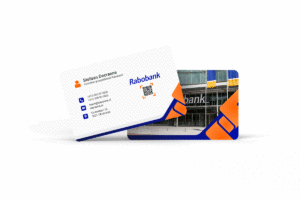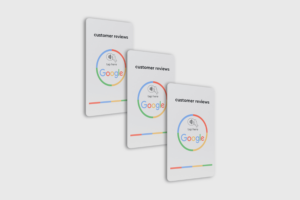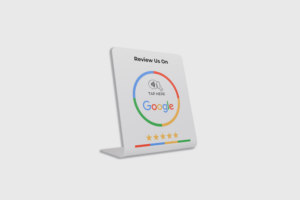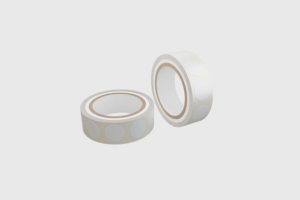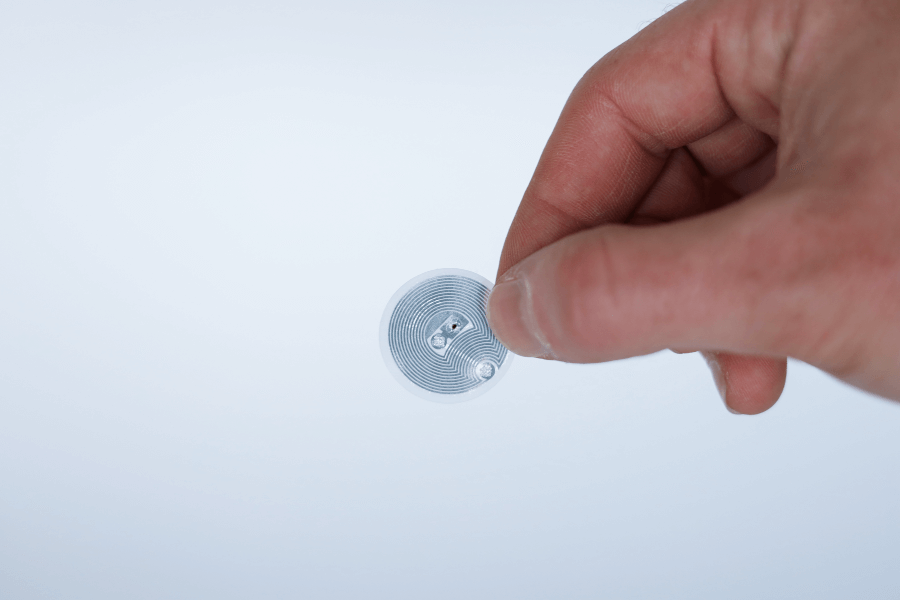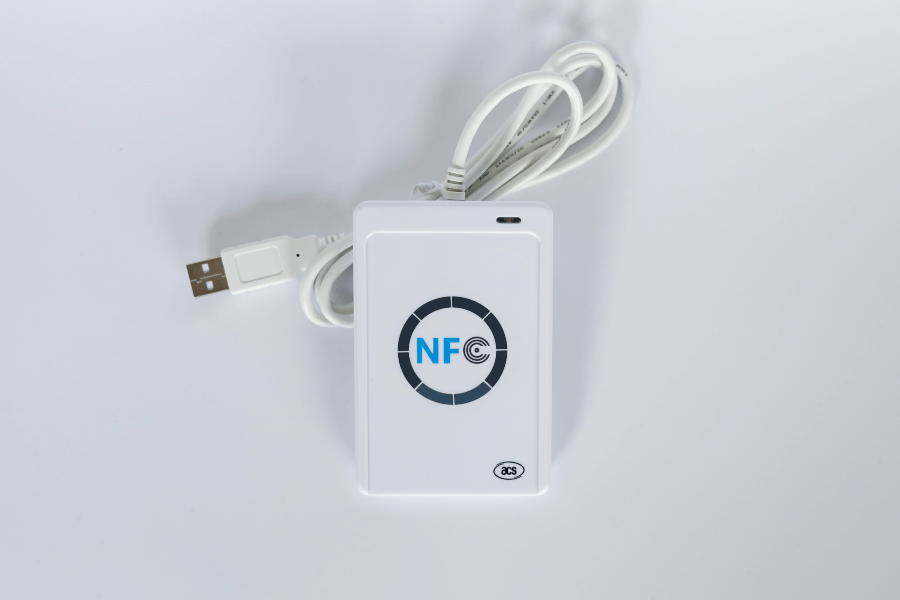No products in the cart.
NFC Products
Review products
Shopping Cart
RFID Tags: The meaning
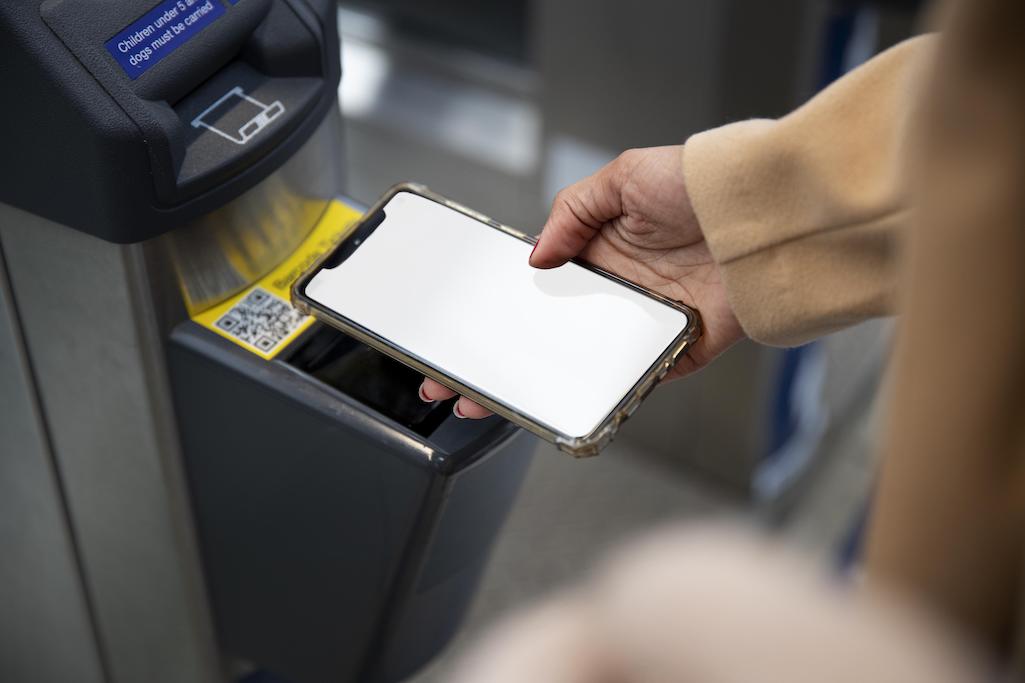
Today, RFID is used in many industries. RFID, which stands for Radio Frequency Identification, is a technology that makes it possible to automatically store and read information from so-called "tags" by means of radio waves. These tags are all around us and play a crucial role in how we experience and use technology.
Table of contents
What is an RFID tag?
An RFID tag is a small chip that stores information that can be read by an RFID reader. These chips have had a revolutionary impact, especially when compared to traditional barcodes. Unlike barcodes that must be physically scanned, RFID tags can be read remotely and without direct vision. This makes them extremely efficient and versatile in use.
How RFID tags work
Each RFID tag operates on the basis of radio waves. When these waves reach the tag, the stored information is transmitted and captured by a reader. There are two main types of RFID tags: active and passive. Active tags have their own power source, which means they can transmit a signal over longer distances. Passive tags, on the other hand, do not have their own power source and use the energy of the receiving radio waves to transmit their information.
Applications of RFID tags
The applications of this technology are virtually limitless. In retail stores, they are used for inventory management and security. But they also help identify and track animals in the animal world. Travelers will be familiar with ov chip cards, which are all RFID cards. In the medical field, they are used to track equipment and patients. RFID is also indispensable at large events for ticketing and access control. And those are just a few of the many applications.
Benefits of using RFID tags
RFID technology has brought many benefits. The speed at which information is collected and processed is unparalleled. This not only reduces human error, but also provides real-time tracking. In addition, they offer enhanced security against both theft and forgery.
Challenges and considerations
But as with any technology, there are challenges. There are concerns about security and privacy, since RFID tags can be read from a distance. The cost of implementation can also be significant. In addition, technical issues such as interference and the limited reading distance can sometimes be challenging.
Future of RFID technology
Despite the challenges, RFID technology continues to evolve. With constant innovations and emerging trends, this technology can become even more versatile. New application areas are constantly being discovered and explored, which means we can expect a lot from RFID in the future.
RFID tags have undoubtedly revolutionized the world of technology. While there are challenges, the benefits and opportunities they offer are enormous. As we move forward in this digital age, RFID tags will undoubtedly remain an integral part of our daily lives.
Check out our RFID tagsWhat is an RFID tag?
An RFID tag is a small chip that stores information and can be read by an RFID reader through radio waves. Compared to traditional bar codes, RFID tags can be read remotely and without direct vision, making them efficient and versatile.
How do RFID tags work?
RFID tags operate on the basis of radio waves. When radio waves reach the tag, the tag transmits the stored information, which is captured by a reader. There are two main types of RFID tags: active tags, which have their own energy source for greater distance, and passive tags, which use the energy of received radio waves to transmit information.
What are some applications of RFID tags?
The applications of RFID tags are diverse. They are used for inventory management and security in retail stores, for animal identification and tracking in wildlife, and for public transport ov chip cards. In the medical sector, they are used for tracking equipment and patients, and at events for ticketing and access control. These are just some of the many applications.
What are the benefits and challenges of RFID use?
The benefits of RFID include rapid information-gathering, reduced human error and real-time tracking. It offers enhanced security against theft and forgery. Challenges include security and privacy concerns, implementation costs and technical issues such as interference and limited reading distance.
What is the future of RFID technology?
Despite challenges, RFID technology continues to evolve. Constant innovations and emerging trends will make the technology even more versatile. New application areas are being discovered and explored, keeping RFID an integral part of our daily lives in this advancing digital age.
Don't miss anything and read all about NFC
Our most popular products
Reviews
★★★★★
Very satisfied with the serviceThe NFCW passes are a great example of how to use Sustainable Technology and still make an impact. We are very pleased with the service and quick response times.
Vera Timmermans - Evoke Staffing★★★★★
Quick response to inquiriesQuick response to questions. The dashboard is clear and easy to manage.
Shui Yi van de Laar - Endenburg Electrical Engineering★★★★★
Good price quality & Excellent serviceGood value for money & excellent service. Tickets were lost by mail but a solution was worked out together.
Bjorn Andelhofs - Topcon Positioning★★★★★
Very customer friendlyGood communication and fast service. Very customer friendly, and the site is easy and clear.
Astrid van Heinsbergen - HG International★★★★★
Very satisfied!We are very satisfied with our NFC business cards from NFC World. The dashboard is user-friendly and the cards are easy to use.
Natacha Wuestman - Wuestman★★★★★
The cards work easily and very wellThe cards work easily and very well. This way we are more sustainable, because we do not have to order 100's of paper business cards for our colleagues.
Eva Hartman - Lycens BVGive 20%, Get 20% 🎁
Give your friends 20% off their next order. And we'll give you 20% off for every successful referral.
Invite friendsAll our products are subject to our terms and conditions. All prices include VAT and other taxes and exclude any shipping and service charges. You can read how we handle cookies in our privacy policy.

